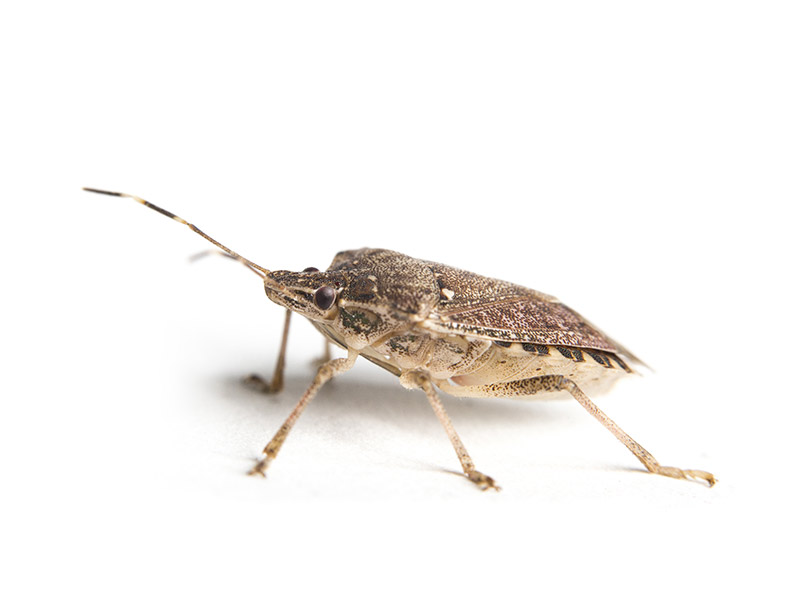Choose professional Pest Control in Port Charlotte for a healthy home.
Choose professional Pest Control in Port Charlotte for a healthy home.
Blog Article
Discovering Ingenious Methods and Products for Effective Pest Control
The landscape of parasite control is advancing, noted by the introduction of ingenious methods and products created to boost efficiency and sustainability. From clever traps furnished with sophisticated monitoring systems to organic methods that utilize all-natural predators, these improvements provide a standard shift in just how we approach pest monitoring.
Smart Traps and Monitoring Systems
Exactly how can modern-day innovation improve pest monitoring? One significant advancement is the advancement of wise catches and keeping track of systems, which provide real-time data and analytics for effective pest control. These systems make use of sensors and cordless innovation to identify parasite task, alerting residential or commercial property supervisors and insect control specialists to invasions before they rise.
Smart catches are equipped with features such as lure stations that attract parasites and catch them efficiently. These catches can be kept track of remotely, allowing for prompt interventions and reducing the requirement for extensive chemical applications. In addition, the assimilation of maker discovering formulas allows these systems to differentiate between target bugs and non-target types, enhancing the accuracy of bug control steps.
In addition, the information collected from wise traps can be assessed to recognize patterns in parasite actions and environmental variables adding to invasions (Pest Control in Port Charlotte). This information is important for establishing targeted pest administration methods tailored to details settings. By welcoming clever catches and monitoring systems, parasite control professionals can improve their functional effectiveness and lower the ecological influence of bug monitoring, inevitably bring about more secure and much more lasting methods in the market
Biological Parasite Control Approaches
Using all-natural predators and bloodsuckers, biological bug control approaches use an eco friendly choice to chemical therapies. This approach entails the introduction or improvement of certain microorganisms that can naturally control parasite populations, therefore reducing reliance on artificial pesticides. Common instances include using ladybugs to manage aphid problems and parasitical wasps to target caterpillars.

Organic control can be categorized into 3 main strategies: classic, augmentative, and preservation. Classical organic control includes importing all-natural enemies from the bug's native environment, while augmentative control entails enhancing the population of existing natural adversaries via releases. Conservation methods concentrate on developing conditions that support these useful organisms in the ecosystem.
The effectiveness of organic bug control rests on comprehending the complex communications within communities. It often calls for a detailed evaluation of pest dynamics and the life cycles of both the bugs and their natural opponents. While organic approaches may not provide instant results like chemical options, they add to long-lasting bug monitoring and ecosystem health. As understanding of environmental problems expands, biological bug control approaches are progressively acknowledged for their lasting function in incorporated pest management programs.
Eco-Friendly Chemical Alternatives
Environmentally friendly chemical choices provide a practical solution for insect management that decreases environmental impact pop over to these guys while efficiently regulating insect populations. These options are originated from natural resources and are meticulously formulated to target certain parasites without damaging useful organisms, making them an important element of lasting pest control methods.
Amongst one of the most efficient environmentally friendly choices are plant-based pesticides, such as neem oil and pyrethrin, which why not look here are acquired from the seeds and blossoms of numerous plants. These compounds interrupt the life cycles of insects, decreasing their populaces without the poisonous effects related to conventional pesticides - Pest Control in Port Charlotte. In addition, important oils like peppermint and clove oil display repellent homes, additionally improving their energy in pest monitoring

Moreover, green chemical options typically break down extra swiftly in the atmosphere, decreasing the risk of soil and water contamination. This characteristic aligns with the boosting customer need for sustainable methods in farming and metropolitan parasite control. As research remains to development, the development of cutting-edge environment-friendly formulas will better boost efficacy and widen application areas, allowing pest administration professionals to take on greener, much more liable approaches in their practices while safeguarding human health and the original site environment.
Scent Disruption Methods
One more ingenious method in sustainable bug management is using scent disturbance techniques. These methods exploit the natural chemical signals, or scents, that pests make use of for communication, particularly in mating actions. By interrupting these signals, pest populaces can be effectively managed without turning to hazardous chemicals.
Scent traps are commonly used in this strategy. Over time, this can lead to a significant decline in pest populations.

Integrated Parasite Management Techniques
Efficient parasite control frequently requires a comprehensive strategy, and Integrated Parasite Management (IPM) methods offer a framework for attaining this objective. IPM incorporates different monitoring practices to decrease insect populaces while minimizing dependence on chemical pesticides. This complex strategy starts with detailed tracking and recognition of bugs, permitting targeted treatments based upon certain insect stress.
Cultural techniques, such as plant rotation and sanitation, play a vital duty in stopping insect establishment. Organic controls, consisting of natural killers and parasitoids, are utilized to maintain insect populations at workable degrees. When essential, careful chemical therapies are applied, stressing reduced toxicity to non-target types and the environment.
By using this holistic approach, IPM not only enhances insect control effectiveness yet additionally contributes to lasting environmental balance. Ultimately, Integrated Bug Administration stands for a forward-thinking remedy that lines up agricultural productivity with environmental stewardship, making it crucial in contemporary bug control strategies.

Verdict
To conclude, the integration of ingenious techniques and items for effective parasite control represents a considerable development in lasting parasite management. Smart catches and monitoring systems, organic bug control approaches, eco-friendly chemical choices, and scent interruption methods jointly improve the effectiveness of pest management strategies. By taking on these methods, the dependence on standard pesticides can be minimized, advertising environmental wellness while guaranteeing reliable bug control. Proceeded research study and development in these locations will further improve insect management practices.
Report this page